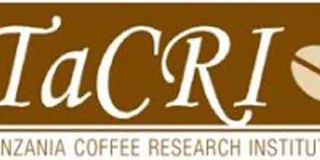TaCRI in dire financial state

What you need to know:
For the last 17 years The Tanzania Coffee Research Institute (TaCRI), one of the oldest agricultural research centres in the country, enjoyed funding from the European Union (EU) which now has come to a halt, leaving TaCRI pleading for urgent intervention by the government to stem its financial crisis.
EU support through the European Development Bank (EDF), in particular, has dealt a blow to the production of hybrid seedlings of improved coffee varieties who’s research stations are located at Sirari which serves Mara region, Maruku in Kagera region but specifically for Robusta coffee, Mwayaya in Buhugwe district (Kigoma) for the western zone, Mbimba (Mbozi), Ugano (Mbinga) and Lyamungo for the northern zone regions.
Moshi. The Tanzania Coffee Research Institute (TaCRI), one of the oldest agricultural research centres in the country, is pleading for urgent intervention by the government to stem its financial crisis.
The situation has worsened after the phasing out of the support it enjoyed for the last 17 years from the European Union (EU), the Director General Dr. Deusdedit Kilambo said here early this week.
The recent decision by the government to halve, from July 1st, the 0.75 per cent of levy that has been deducted for each kilogramme of coffee sold by the farmers and channelled for research purpose at the institute has added salt to injury.
The minister for Finance and Planning Dr. Phillip Mpango announced last month in his budget speech for 2017/2018 financial year that the levy on coffee sales was among "nuisance taxes" to be scrapped in order to motivate the farmers.
"The government should rescue TaCRI by injecting the needed funds for research and operational activities," he told reporters, adding that reliance on the coffee industry stakeholders was not enough.
According to Dr. Kilambo, the phasing out of EU support through the European Development Bank (EDF), in particular, has dealt a blow to the production of hybrid seedlings of improved coffee varieties
TaCRI, a research institute located at Lyamungo on the slopes of Mt. Kilimanjaro, has targeted to release at least 20 million coffee tree seedlings each year which are distributed to groups of farmers across the country.
"There is a huge gap after the end of EU assistance," he said, adding that although negotiations have been finalized for extension of the support, it was not likely the donor agency would resume funding TaCRI this financial year.
"Should they accept the evaluation report, the assistance would not resume until next year or 2019," he said. EU has been supporting TaCRI since 2001, pumping in about Sh1.8 billion each year, mostly used in funding research.
He noted that with the halving of the 0.75 per cent for each kilo of coffee sold at the Moshi auction that went to the body to 0.35 per cent, the organization would be in a critical financial position and can fail to perform its core activities.
TaCRI, formerly known as Lyamungu Agricultural Research and Training Institute, was established in 2000 to rejuvenate the coffee industry through research and practical technological innovations.
Unlike other agricultural research institutes in the country, the institution is a non-profit organization owned by a range of stakeholders in the coffee industry.
These include small and large scale coffee farmers, cooperative societies and unions dealing in coffee; being coffee processors, traders, the government and the private sector
The institution derives its income from the members' contribution as well as financial support from the government and donors, the Endowment Fund for TaCRI and collaborative activities.
However, Dr. Kilambo insisted that it was now time for the government to give full support to the organization which runs five research stations across the country and employs 62 workers, half of them researchers.
The research stations are Sirari which serves Mara region, Maruku in Kagera region but specifically for Robusta coffee, Mwayaya in Buhugwe district (Kigoma) for the western zone, Mbimba (Mbozi), Ugano (Mbinga) and Lyamungo for the northern zone regions.




